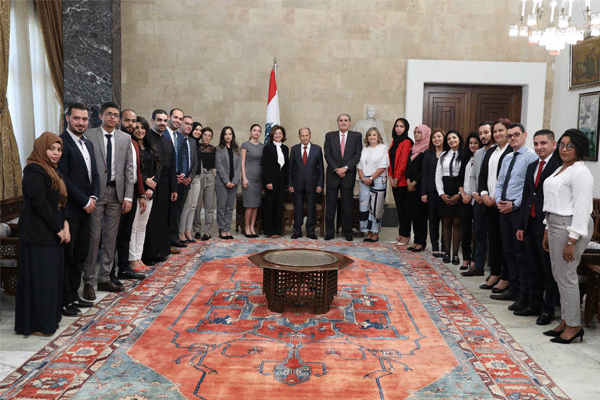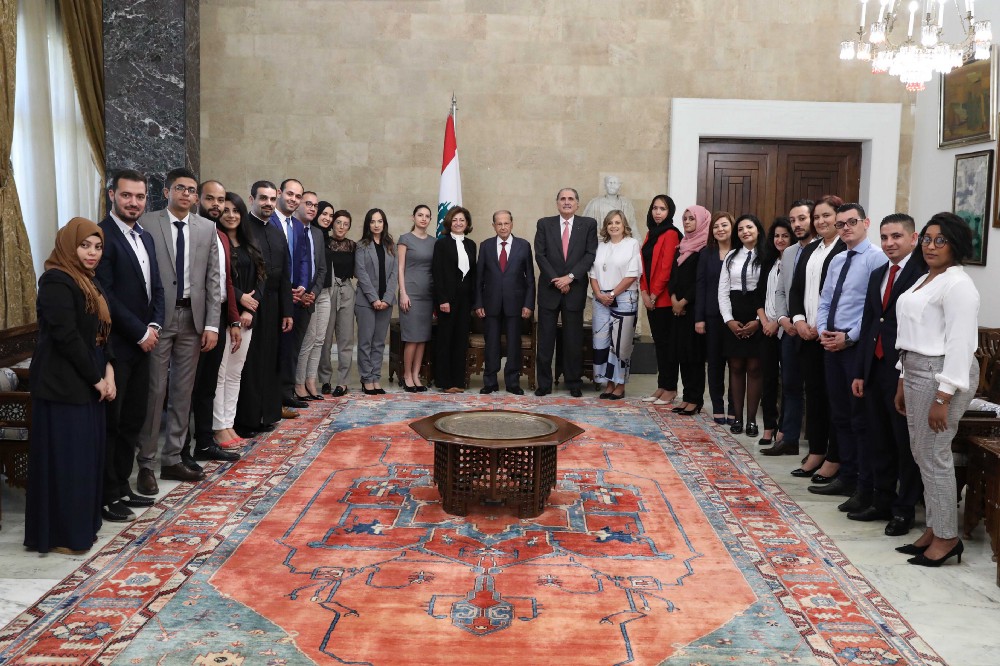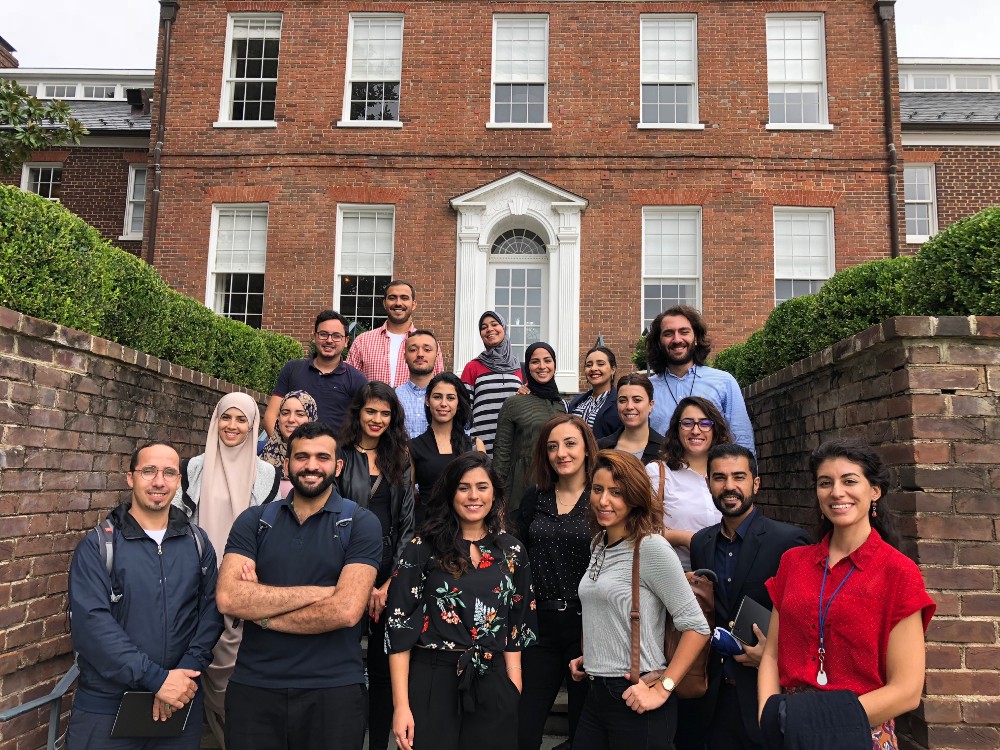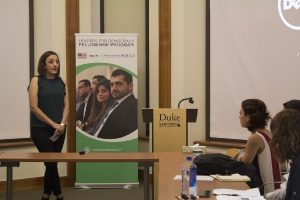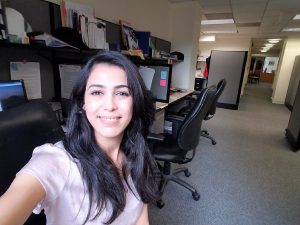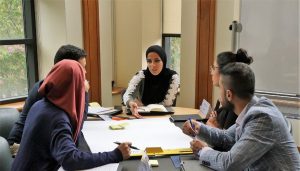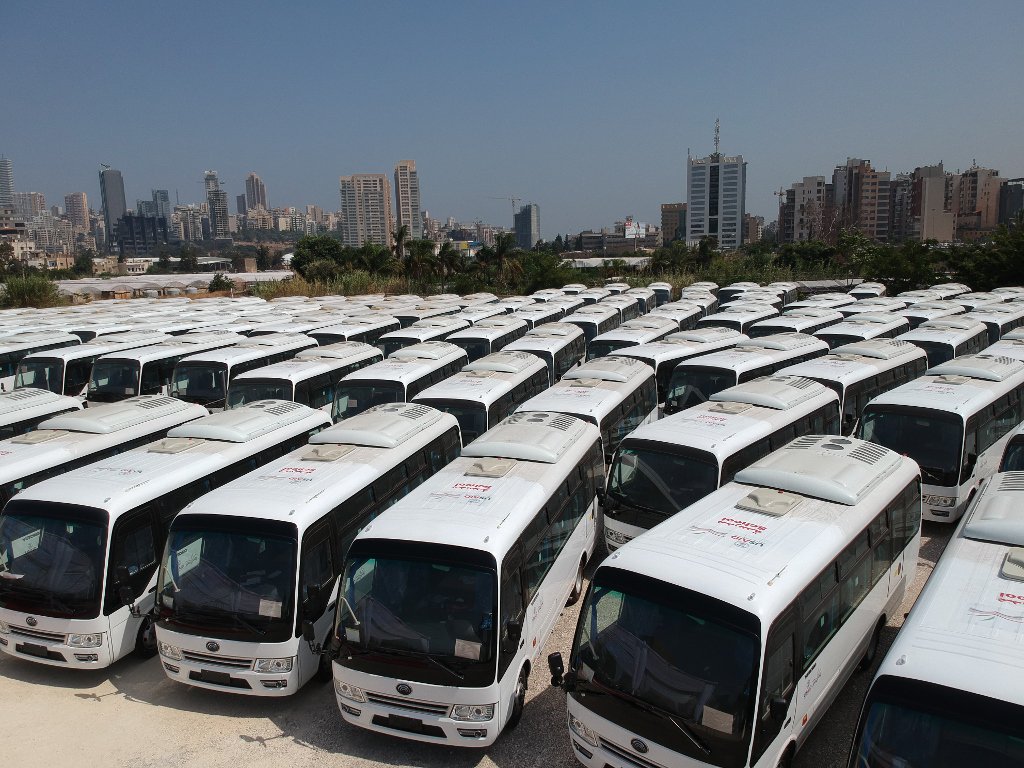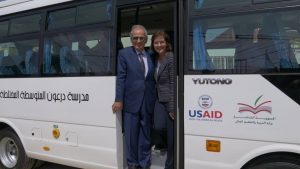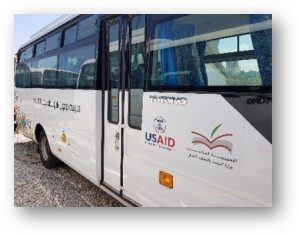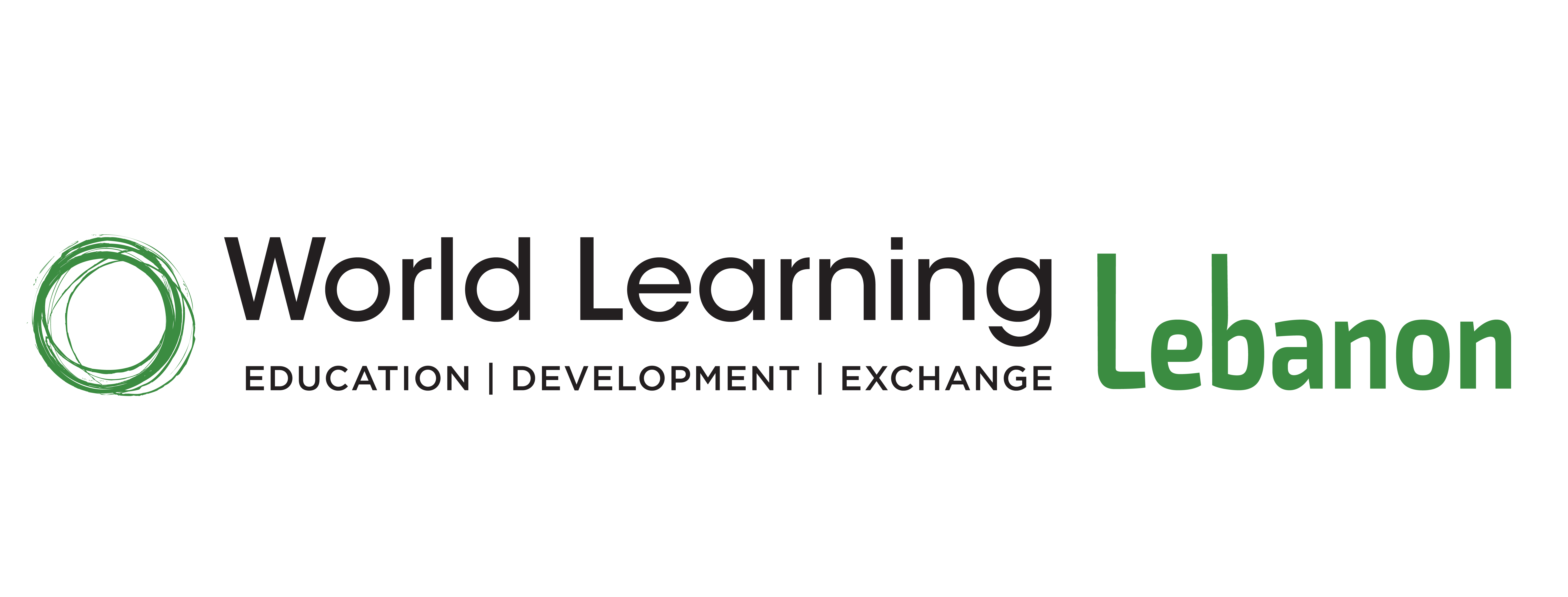
Public schools in Lebanon are better prepared than ever to help primary school students learn to read Arabic. Teachers have received training and coaching to improve their reading lessons. They now have access to resources like classroom libraries and technology, including e-books, that help them practice reading for more effective learning. Schools have also established systems that not only monitor student progress but are designed to support those who are struggling in their reading.
These developments were all part of the USAID-funded Quality Instruction Towards Access and Basic Education Improvement (QITABI) project, which World Learning has been carrying out in partnership with the Ministry of Education and Higher Education (MEHE) since 2014. The project has helped improve education at 260 public primary schools across the country, benefiting more than 73,000 students in grades 1–4. World Learning, MEHE, and the Center for Educational Research and Development (CERD) are now collaborating on a national plan to expand the project to all 910 primary public schools in Lebanon.
Next week at the 2019 Comparative & International Education Society (CIES) Annual Conference in San Francisco, World Learning staff will present five papers on the successes and lessons learned from the project. The Global Education team gave us a sneak peek at what they will be discussing.
Creating an Effective and Sustainable Teacher Coaching System
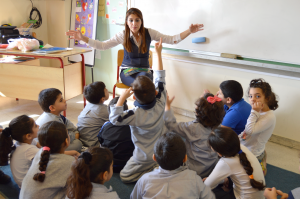 For students to succeed in school, their teachers also need to be positioned for success. That’s why teacher training and coaching has been such an important part of QITABI. World Learning and MEHE provided training and in-school coaching to more than 1,000 Arabic language teachers at public primary schools across Lebanon.
For students to succeed in school, their teachers also need to be positioned for success. That’s why teacher training and coaching has been such an important part of QITABI. World Learning and MEHE provided training and in-school coaching to more than 1,000 Arabic language teachers at public primary schools across Lebanon.
Training sessions, conducted by CERD master trainers, covered a broad swath of practices from QITABI’s literacy education approach that teachers could incorporate in their classrooms. Teachers learned how to differentiate their lessons for students at varying reading levels and led activities like circle time, daily read-aloud sessions, mini-lessons, guided reading, shared reading, and independent reading. They also learned how to use technology and other literacy resources in their lessons and how to track and evaluate student progress.
In addition, QITABI worked to ensure teachers could successfully use their new skills in the classroom by offering a reinforcing system of training and coaching. Following the workshops with CERD trainers, teachers received in-school coaching from teacher mentors from MEHE’s Department of School Teacher Coaching and Counseling and QITABI facilitators.
QITABI Reading Expert Dr. Eva Kozma said via email that this in-school coaching system was designed to be intentional, responsive, and cooperative.
“Regular workshops and pause-and-reflection sessions were conducted with mentors to ensure that QITABI’s model is responding to the sector’s needs,” she wrote. “The work is done in close partnership and collaboration with MEHE and all stakeholders.”
According to Kozma, the system was also designed to be sustainable so the Lebanese government could eventually manage the training and coaching on its own. Beyond training teachers, the project also trained 60 master trainers and mentors from the ministry to work with the teachers.
“The ministry coaching system will permit the government to gain self-reliance to finance and implement the QITABI coaching model across all [public] primary schools in Lebanon,” she wrote.
The system is now being expanded to support the country’s remaining 654 public primary schools. In addition, QITABI-trained government master trainers and teacher mentors plan to assume responsibility for coaching all teachers over a period of several years.
QITABI Reading Expert Dr. Eva Kozma and Ministry of Education and Higher Education Program Manager Iman Assi will present the QITABI Teaching Coaching Model: A Sustainable Model to Reform Teaching and Learning in Lebanese Classrooms at CIES on April 15.
Leveraging Offline Resources to Increase Access to Technology in the Classroom
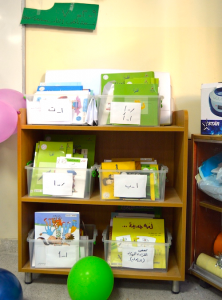 Integrating technology into the classroom has been a challenge in Lebanon, where public schools don’t have access to the internet. QITABI has helped to address this issue by providing each of the 260 participating schools with a suite of offline literacy education e-resources for grades 1–4.
Integrating technology into the classroom has been a challenge in Lebanon, where public schools don’t have access to the internet. QITABI has helped to address this issue by providing each of the 260 participating schools with a suite of offline literacy education e-resources for grades 1–4.
In 2018, the schools received sets of children’s e-books, which were targeted to enhance students’ phonemic awareness, listening comprehension, fluency, and reading comprehension. The e-books were also targeted to students’ reading levels and could be used with struggling readers during one-on-one support in class.
“Teachers can use the e-books during read aloud sessions to reinforce phonemic awareness and build listening comprehension,” said Paulette Assaf, chief of party for QITABI. “The Center for Educational Research and Development considers the e-books to be essential resources for young readers. They feature a clear reading voice and basic animations that help engage students and their content aligns with the national Arabic curriculum and grade level themes.”
QITABI is also creating an e-kit for teachers, which will be distributed on CDs and flash drives within the next few months. The kits include information on QITABI’s reading model with supporting video tutorials, instructions on how to work with students who are not reading at grade level, a guide for providing intensive in-class support to struggling readers, and PowerPoint presentations for interactive lessons.
“The teachers’ e- resources were developed in response to their needs to support struggling readers in class,” Assaf said. “They also reinforce teachers’ understanding of World Learning’s reading approach so they can apply it to their reading lessons and activities.”
These resources will allow teachers to easily review and practice what they learned in their QITABI trainings and through enhanced student engagement in reading lessons. Nearly 38,000 students benefited from these e-resources during the 2017–18 school year and in the near future all public primary schools in Lebanon will have access to these same materials.
QITABI Monitoring and Evaluation Director Mirvat Merhi will present the Arabic Language Offline E-Resources to Support Teacher Professional Development and Sustain Reading Intervention at Public Schools at CIES on April 15.
Employing Universal Screening Tools to Assess Student Progress
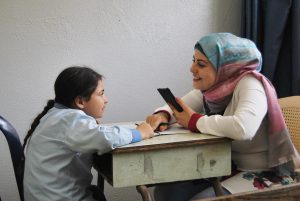 For reading programs to be effective, educators need ongoing feedback on students’ progress to be able to adapt lessons to changing student needs. In Lebanon, though, student evaluations typically focused on reading comprehension instead of reading skills and did not prioritize collecting information teachers could use as part of a responsive classroom.
For reading programs to be effective, educators need ongoing feedback on students’ progress to be able to adapt lessons to changing student needs. In Lebanon, though, student evaluations typically focused on reading comprehension instead of reading skills and did not prioritize collecting information teachers could use as part of a responsive classroom.
QITABI aimed to change that by introducing a universal screening tool that provides a standard method of monitoring students’ reading performance over time.
“The universal screener is a formative assessment tool that teachers can use to evaluate student learning,” said Rajani Shrestha, World Learning’s director of Global Education. “It provides rapid feedback so that they can adjust their teaching to meet students’ needs and improve learning in real time.”
The assessment is based on the curriculum and carried out at least three times during each academic year. Arabic language teachers administer the untimed screening to students individually to evaluate their reading skills and track their progress.
Teachers have been able to use the data gathered through the screenings to identify classroom needs and respond quickly and effectively.
The screening tool also helped to measure QITABI’s impact on student learning outcomes. These assessments showed that after one year, 79.4 percent of students in the schools using QITABI’s teaching model had improved by at least one reading level.
They also demonstrated the effect QITABI’s teacher training had in the classroom. Students whose teachers completed training on integrating technology into the classroom showed significantly more improvement than those whose teachers did not. The same was true for students whose teachers completed training in the early-grade reading approach.
Based on feedback from educators who took part in the pilot study, QITABI modified some of the assessment tools and developed automated versions of others to make the system more efficient and less time consuming. The program also provided teachers with additional coaching and classroom support to facilitate the assessments.
These revised and automated tools will allow schools to independently monitor and evaluate student progress and provide a responsive and effective education for all students.
QITABI Monitoring and Evaluation Director Mirvat Merhi and the Center for Educational Research and Development’s Coordinator of Joint Academic Departments Rana Abdallah will present the QITABI Universal Screening Formative Assessment Tools: A Complementary Approach to Standardized Assessment of Early Grade Reading Skills at CIES on April 17.
Supporting Struggling Readers with an Early Warning System
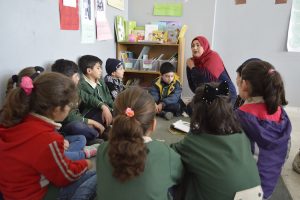 Despite having access to cutting-edge resources, assessment tools, and well-trained teachers, there will always be students who struggle with reading. It’s vital to identify those students as early as possible to make a difference in their academic progress.
Despite having access to cutting-edge resources, assessment tools, and well-trained teachers, there will always be students who struggle with reading. It’s vital to identify those students as early as possible to make a difference in their academic progress.
“In Lebanon, [there is] a need to adopt an in-class model that can offer struggling readers early support in the Arabic classroom to ensure their school success,” Kozma wrote.
QITABI created a three-tiered system of escalating interventions to support students who are having difficulty. It begins with the universal screening assessment, which helps teachers tailor their lessons to accommodate students at different reading levels. Students who are struggling then receive extra attention through small group, guided reading sessions several times a week. The last and most intensive tier is called the Early Warning System (EWS) and provides individualized support to students having significant difficulty making progress.
During the EWS period, teachers provide intensive one-on-one support for 15 to 20 minutes, two to three times a week for up to 12 weeks. They also track the student’s performance and keep a record of other significant indicators, such as multiple absences, interactions with peers, and preferred learning style.
If a student has not made progress during those 12 weeks, the teacher will alert the school’s curriculum coordinator and principal, as well as the student’s parents, so they can collaborate on an action plan to address the continuing issues.
The results of QITABI’s pilot study of EWS in 20 schools showed promising results. Of the 509 students who received additional support through EWS, 48 percent improved by at least one reading level.
“Arabic language teachers can be empowered to effectively support struggling readers in class,” Kozma wrote.
QITABI Reading Expert Dr. Eva Kozma and the Center for Educational Research and Development’s Head of Beirut Training and Resources Center’s Yvonne El Feghali will present QITABI Individualized Arabic Reading Support Through the Early Warning System at CIES on April 17.
Supporting Arabic Language Learners in the Classroom
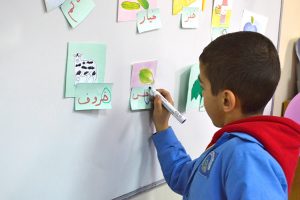 Another challenge teachers in Lebanon face is bridging the divide between colloquial, spoken Arabic (Ammiya), which students learn at home, and Modern Standard Arabic (Fus-Ha), which is used in school, writing, and more formal situations. There can be wide variations in grammar, pronunciation, and vocabulary between the two, which means that students may be learning to read in what is essentially a foreign language.
Another challenge teachers in Lebanon face is bridging the divide between colloquial, spoken Arabic (Ammiya), which students learn at home, and Modern Standard Arabic (Fus-Ha), which is used in school, writing, and more formal situations. There can be wide variations in grammar, pronunciation, and vocabulary between the two, which means that students may be learning to read in what is essentially a foreign language.
“This situation is referred to as diglossia,” said Deepa Srikantaiah, World Learning senior education specialist. “Through QITABI, we are working to address diglossia by improving students’ phonemic awareness to develop their fluency and reading comprehension. In addition, we are providing high quality reading materials with clear and attractive illustrations that help build students’ reading vocabulary.”
QITABI’s training has provided teachers with tools and techniques to help students through the transition from Ammiya to Fus-ha. These techniques, which rely on the similarities between the two languages, including common alphabet sounds, phonemes, vocabulary, and sentence structure. Teachers also learned classroom activities that can support student learning, including interactive read aloud sessions to improve pronunciation, build vocabulary, and learn grammar; using leveled books to move readers from simple sentences with common words to more complex ones; re-reading books to build fluency stamina; and shared reading with the teacher in small groups.
QITABI Reading Expert Dr. Eva Kozma will present Teacher Use of Tools and Uptake of Strategies to Address Diglossia Challenges in Teaching Primary Grade Children to Read in Arabic at CIES on April 18.
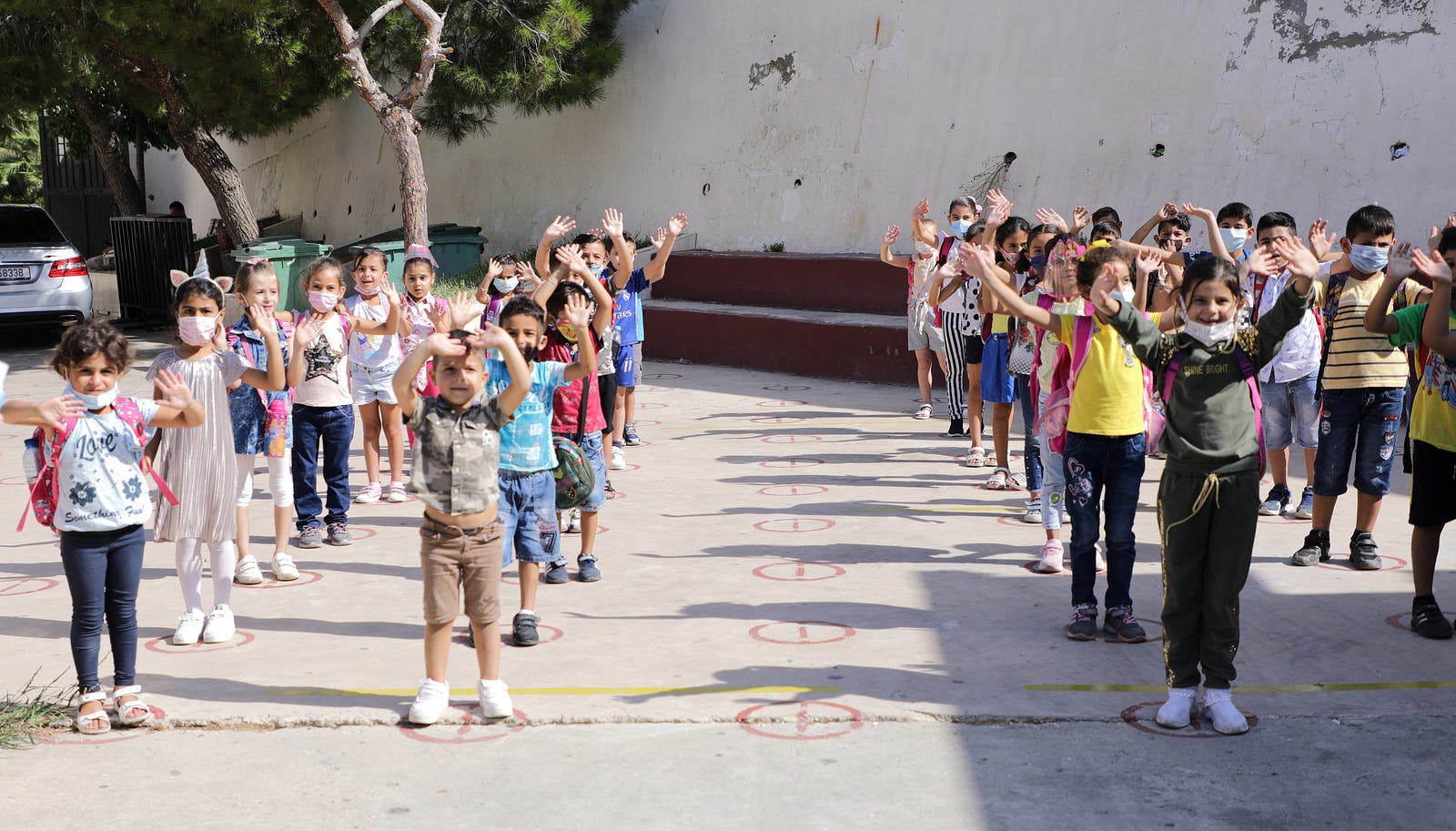
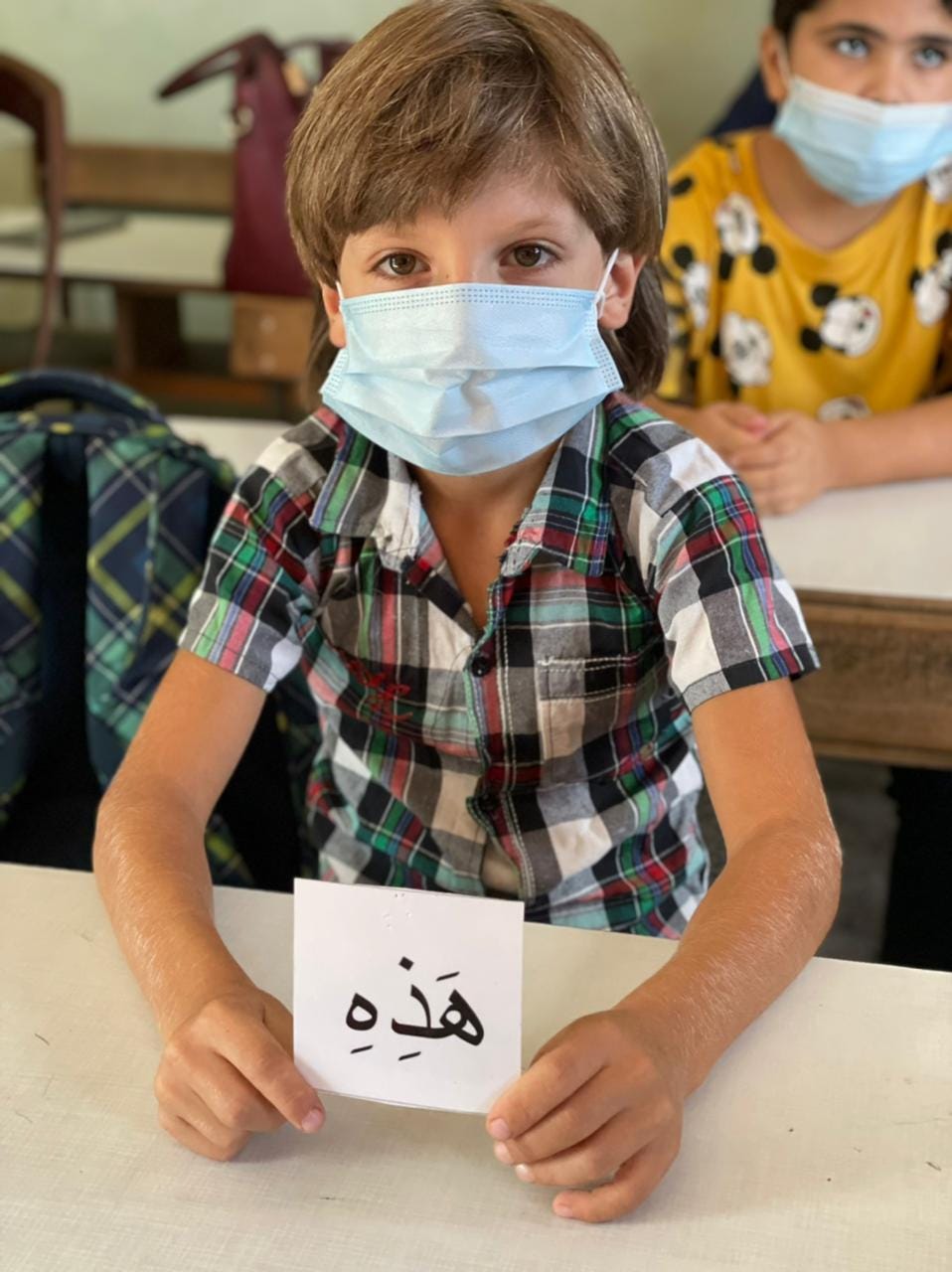





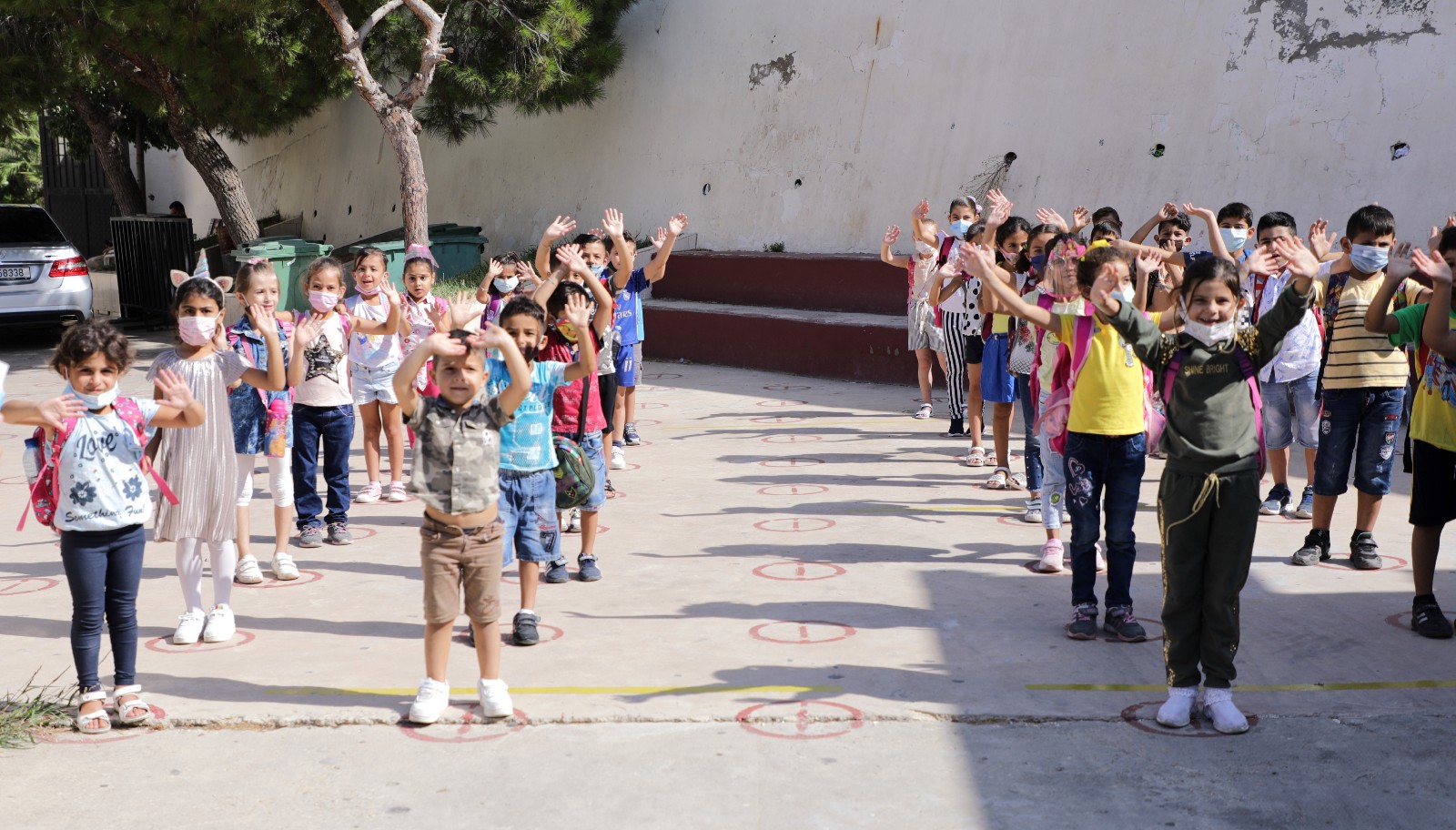
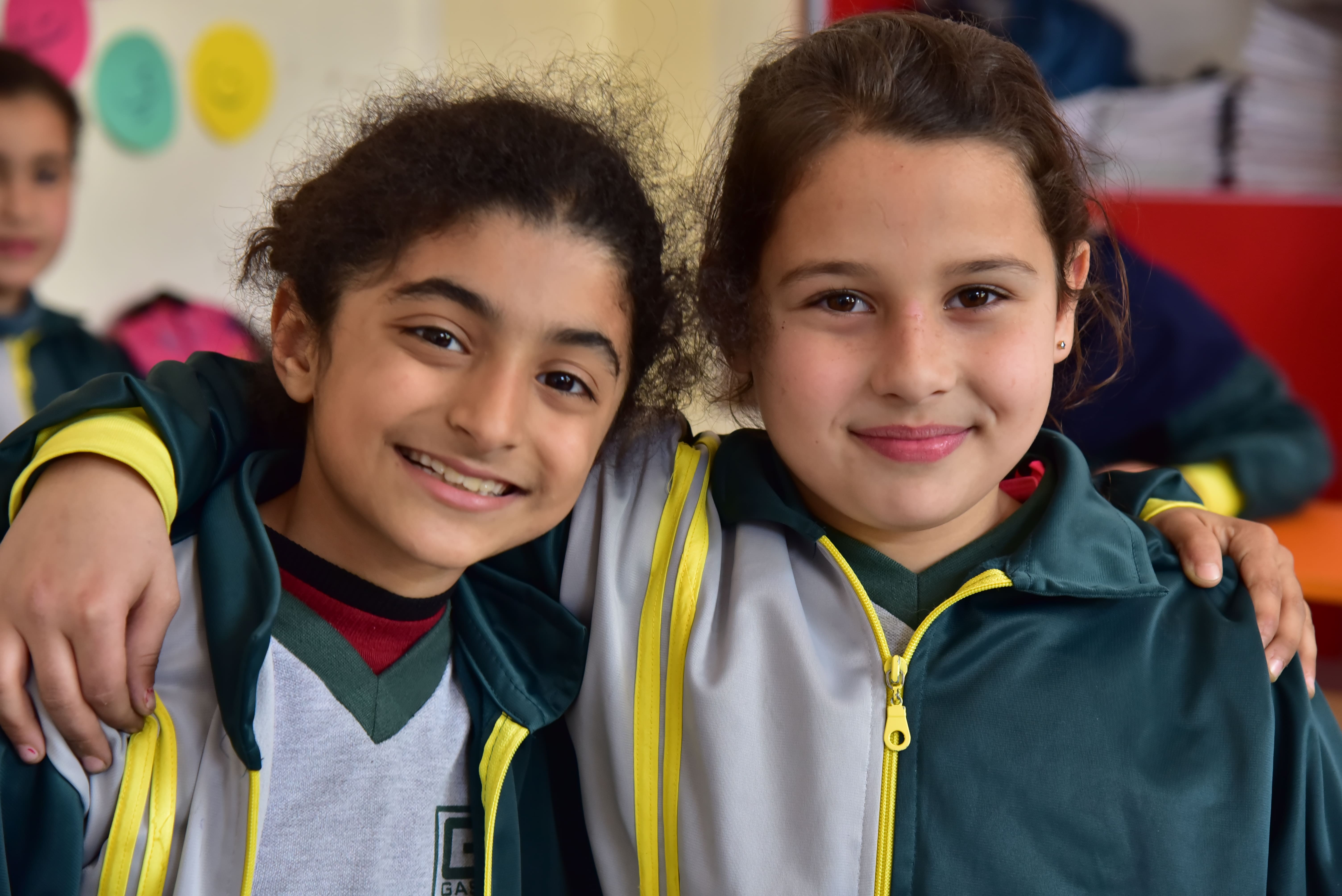
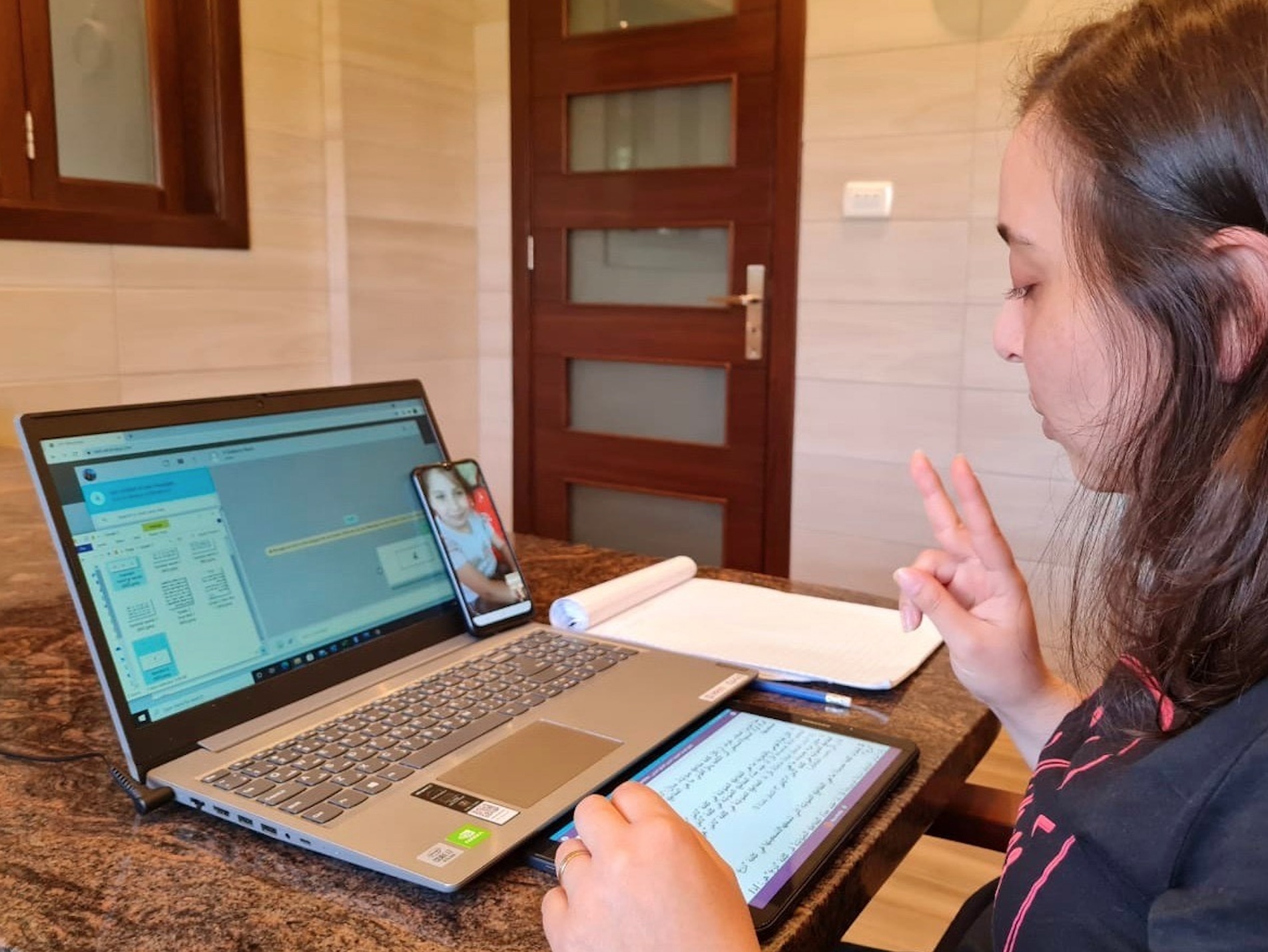
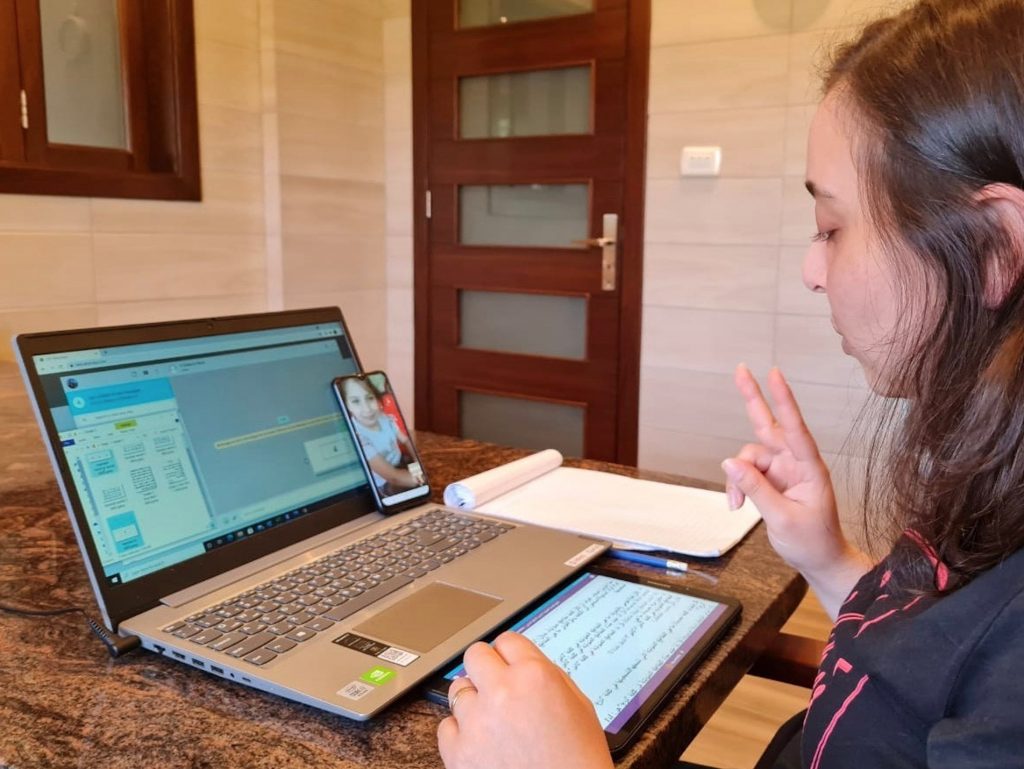
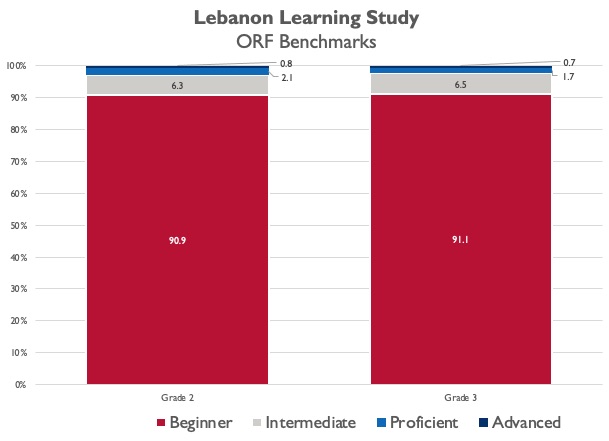
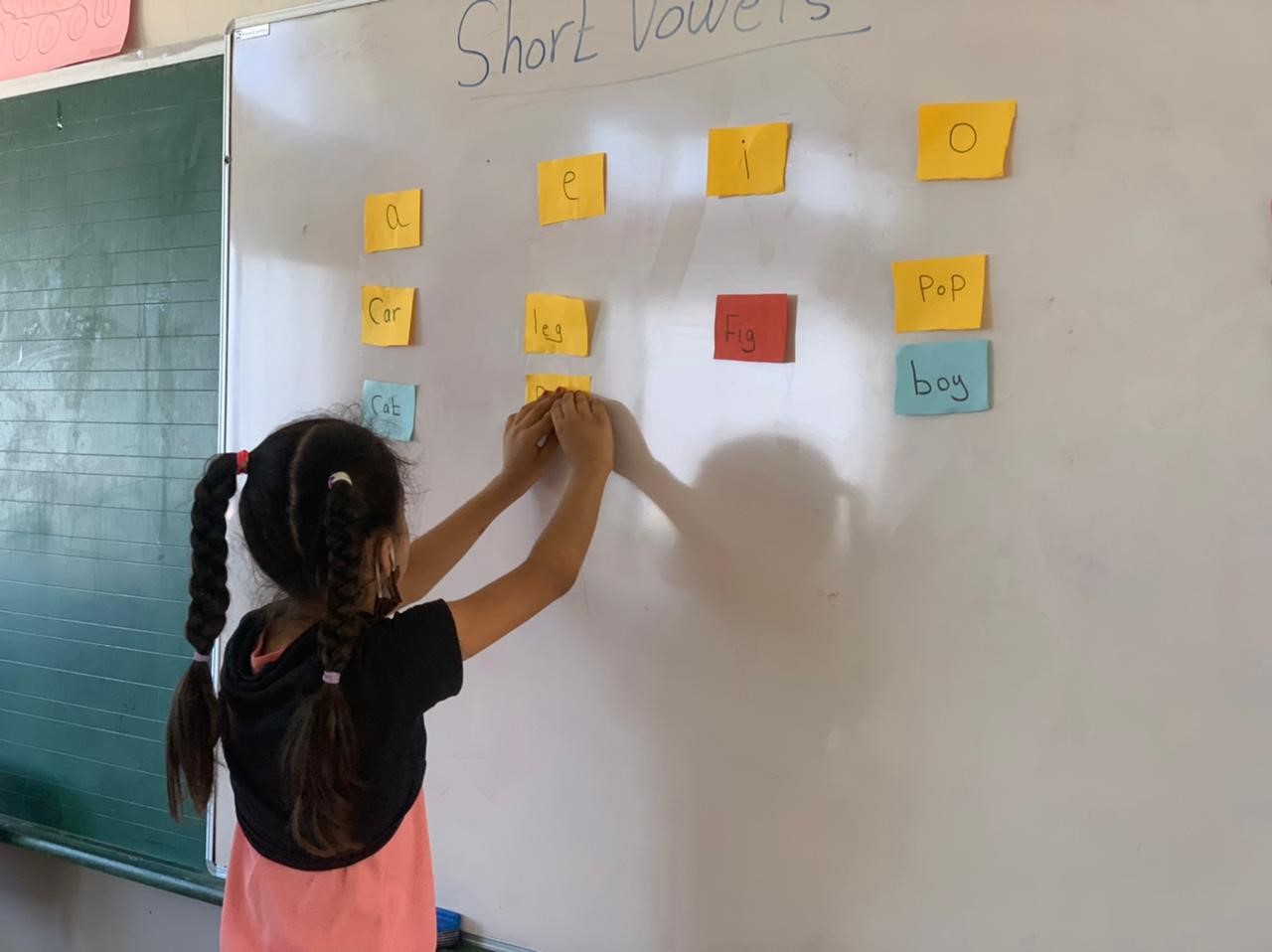
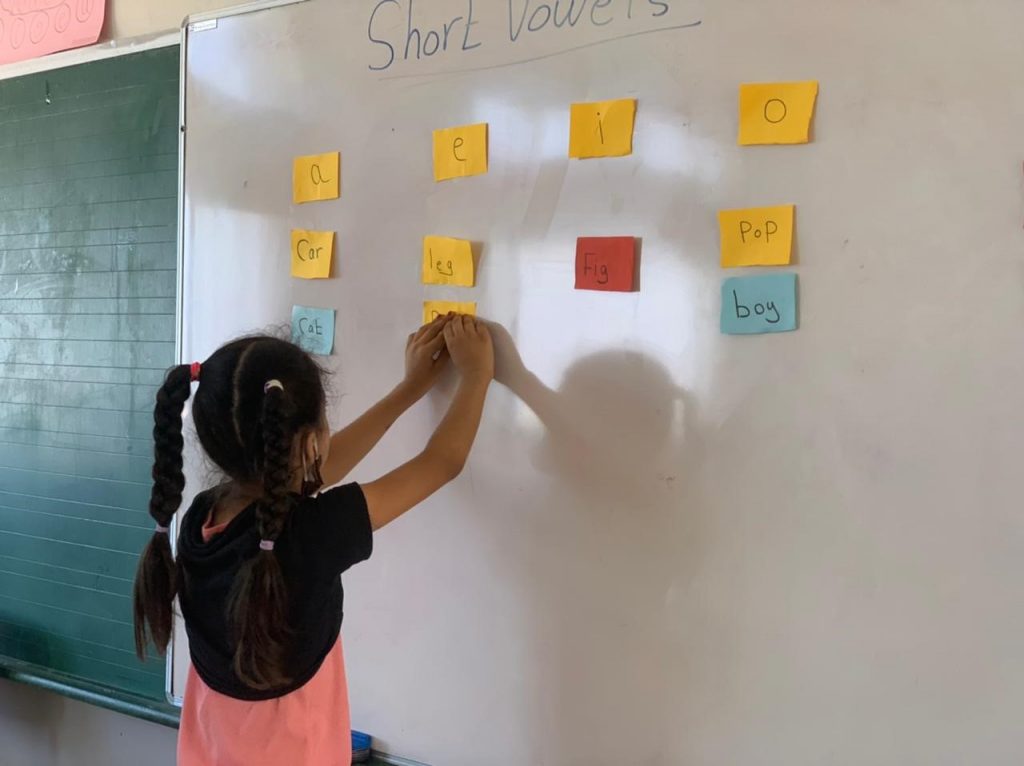
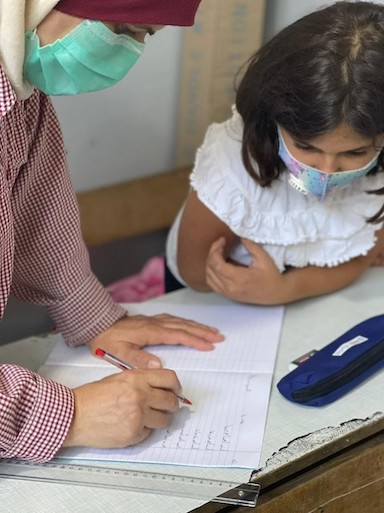
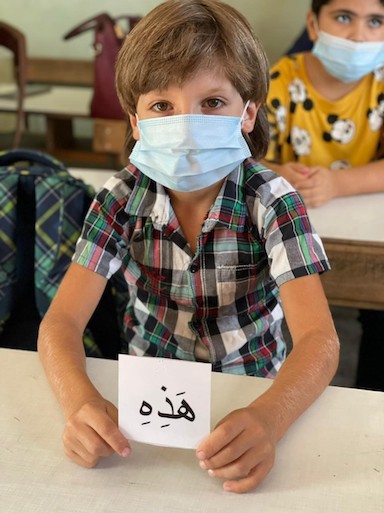

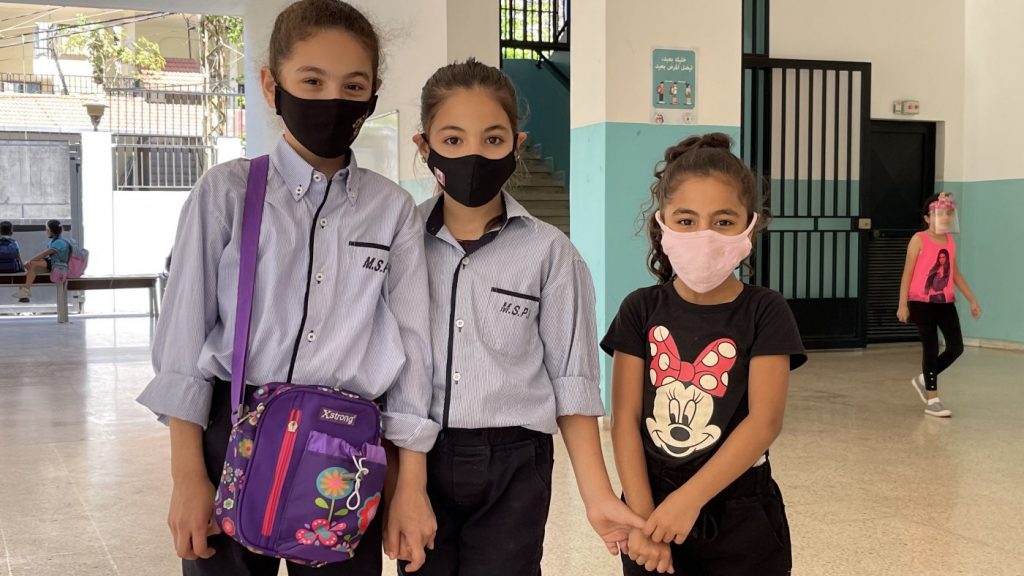

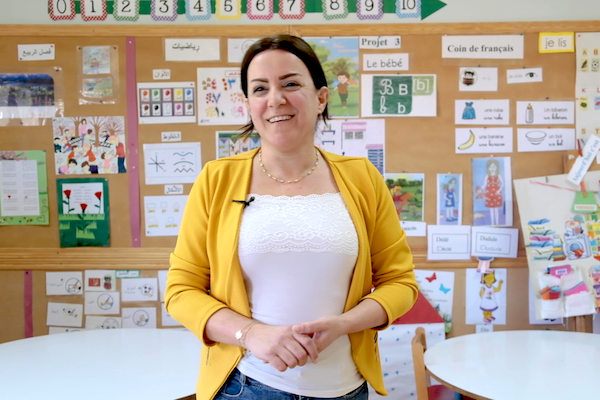
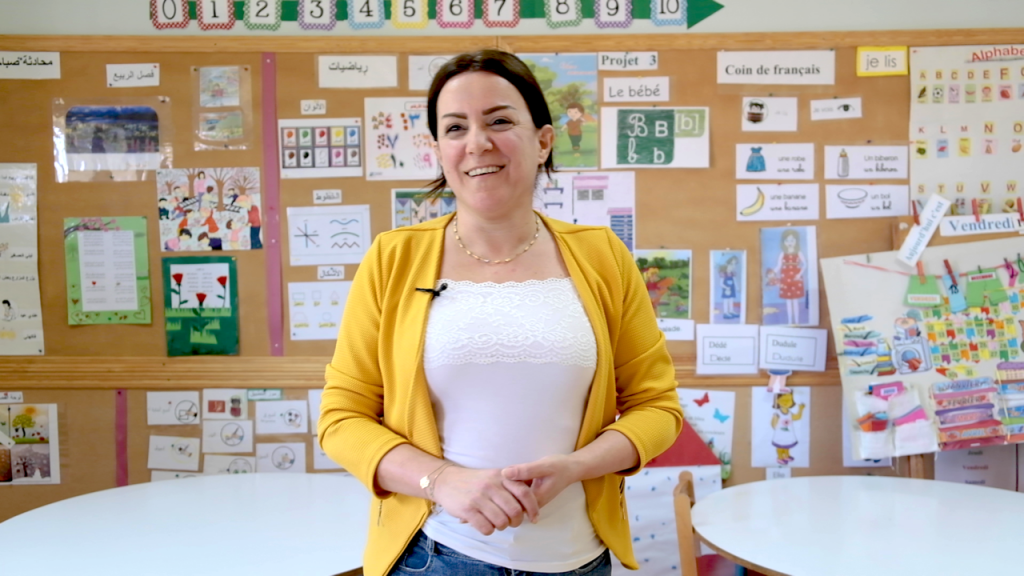
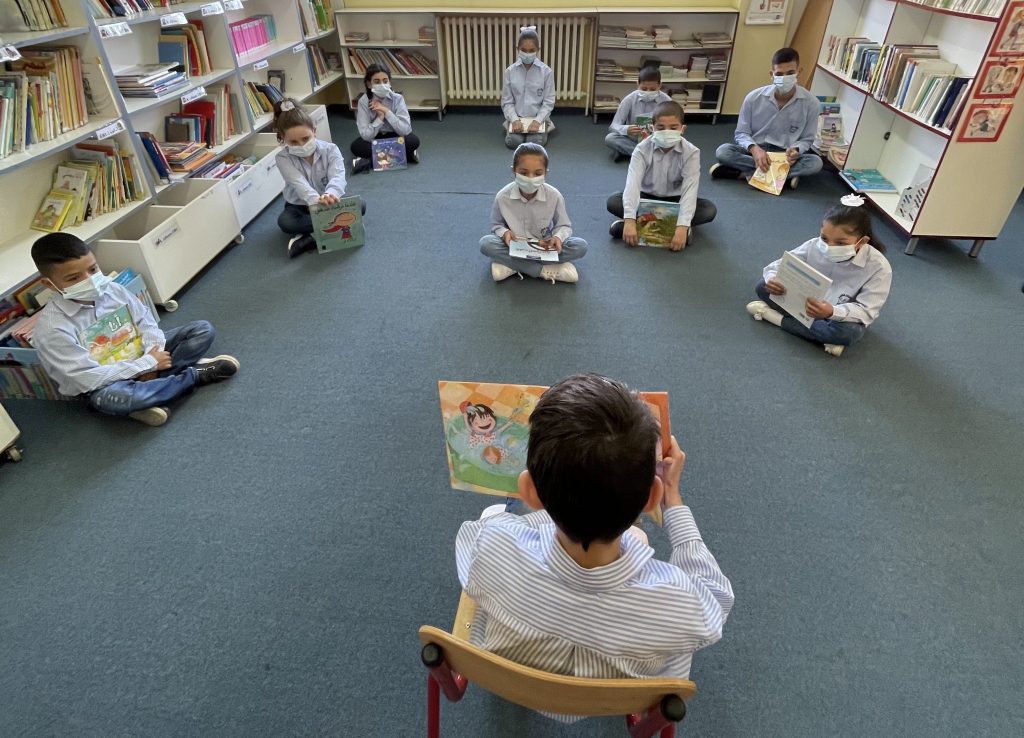
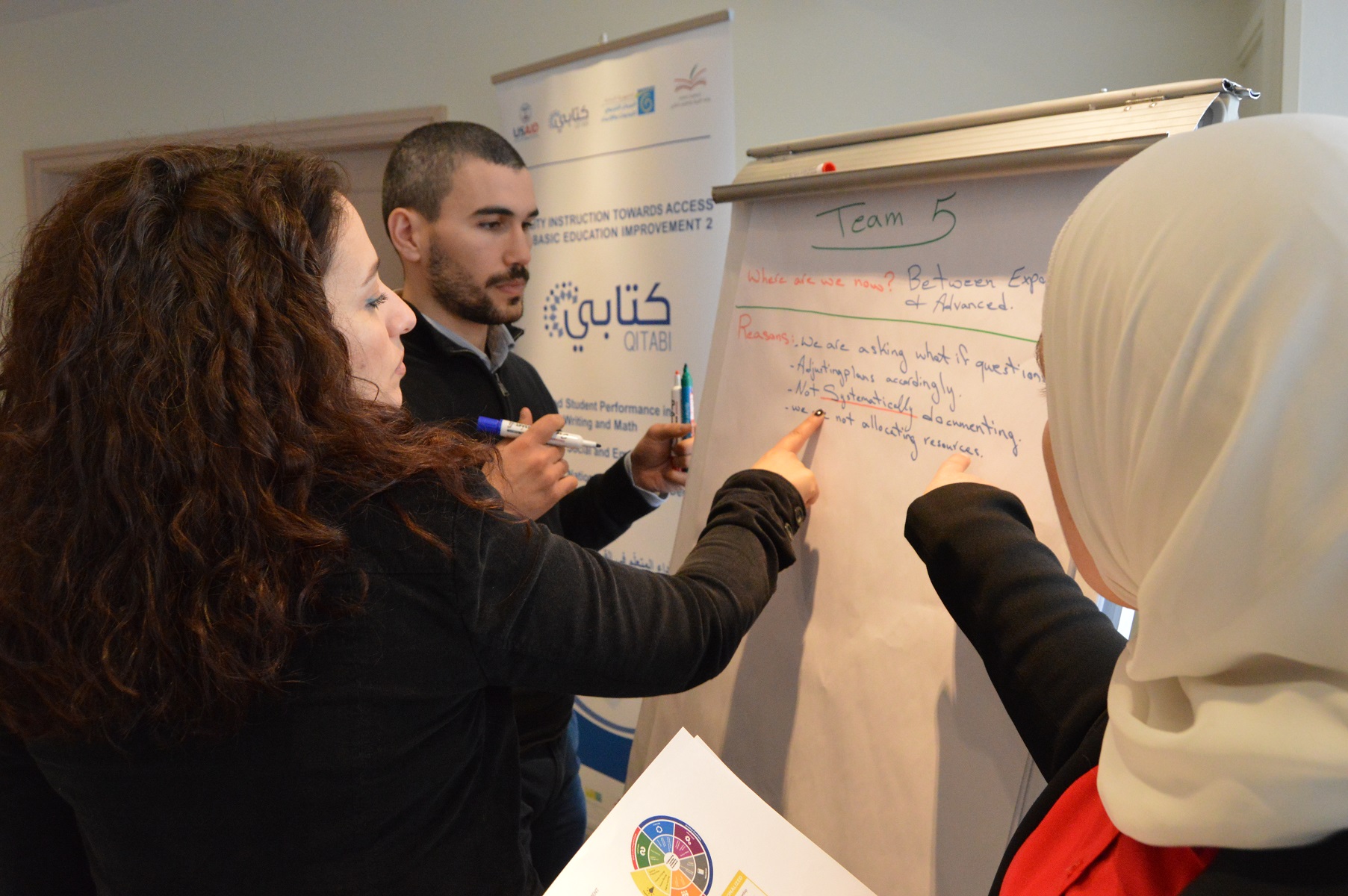
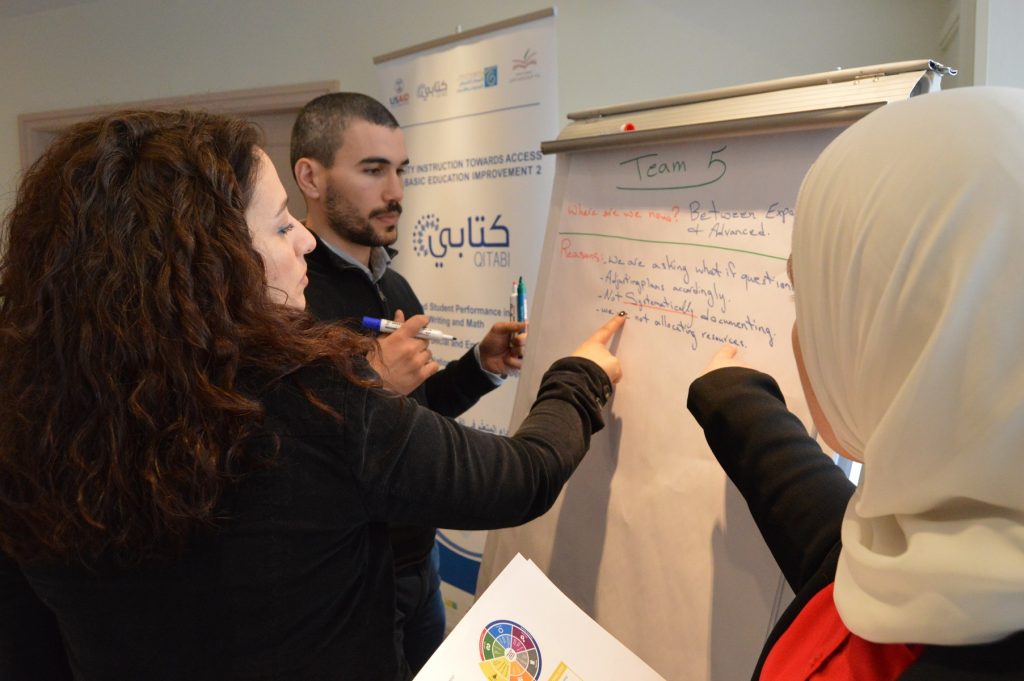
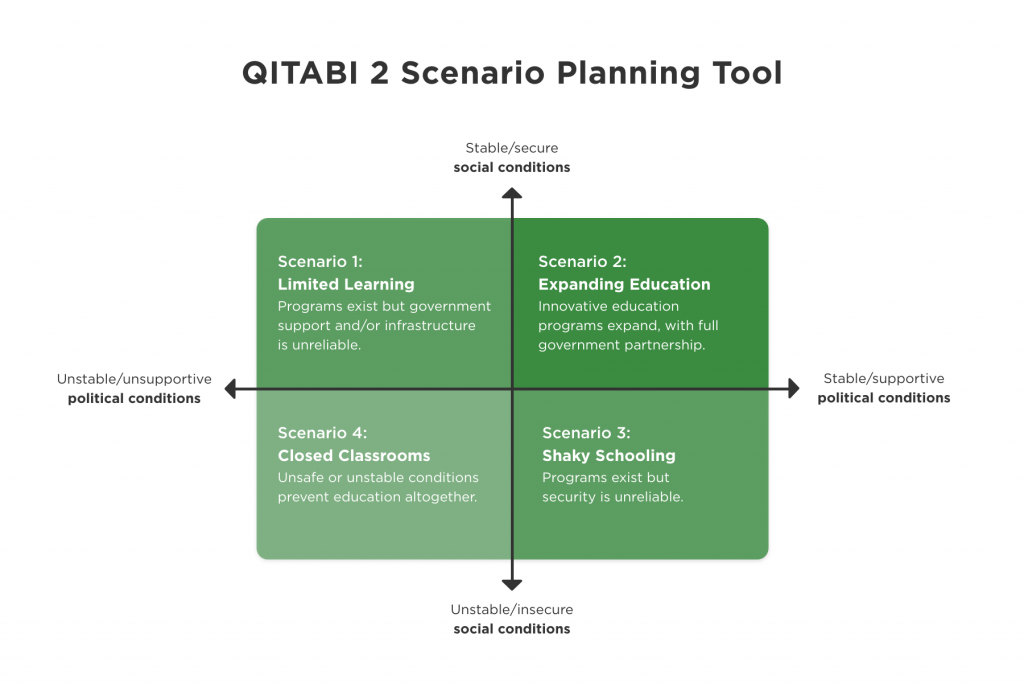

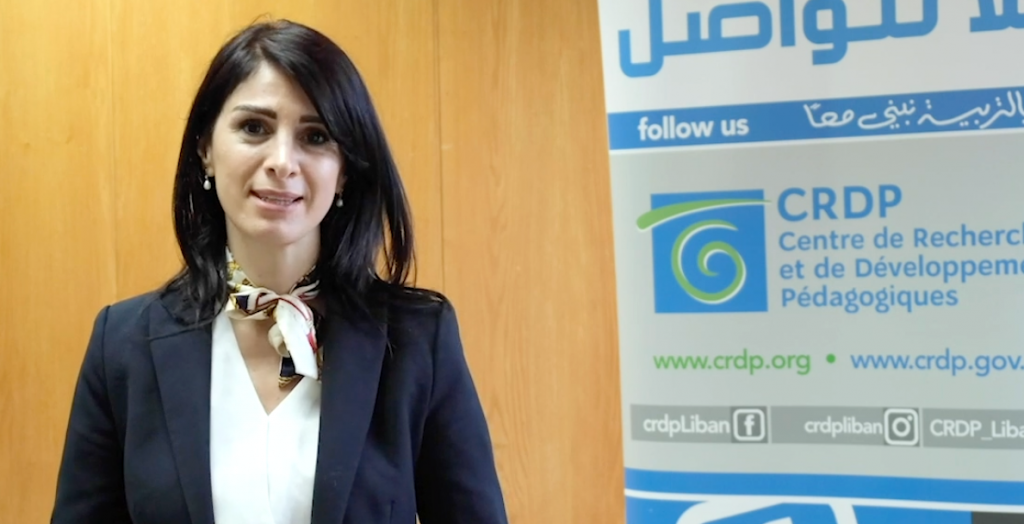
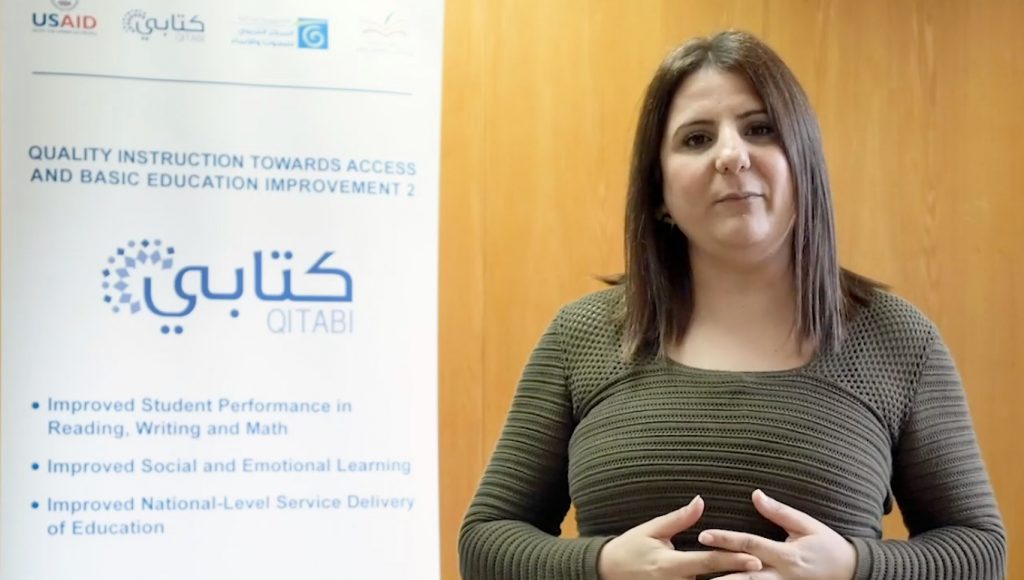
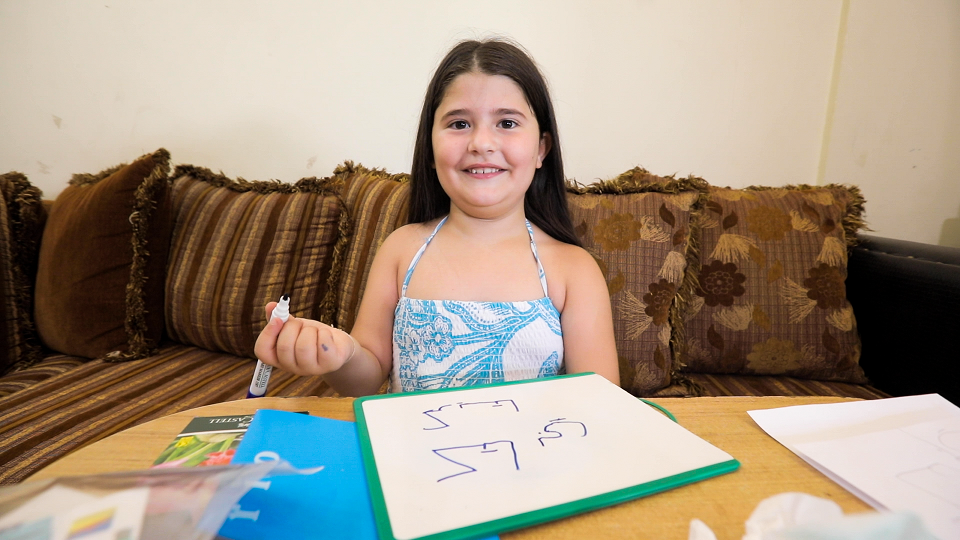
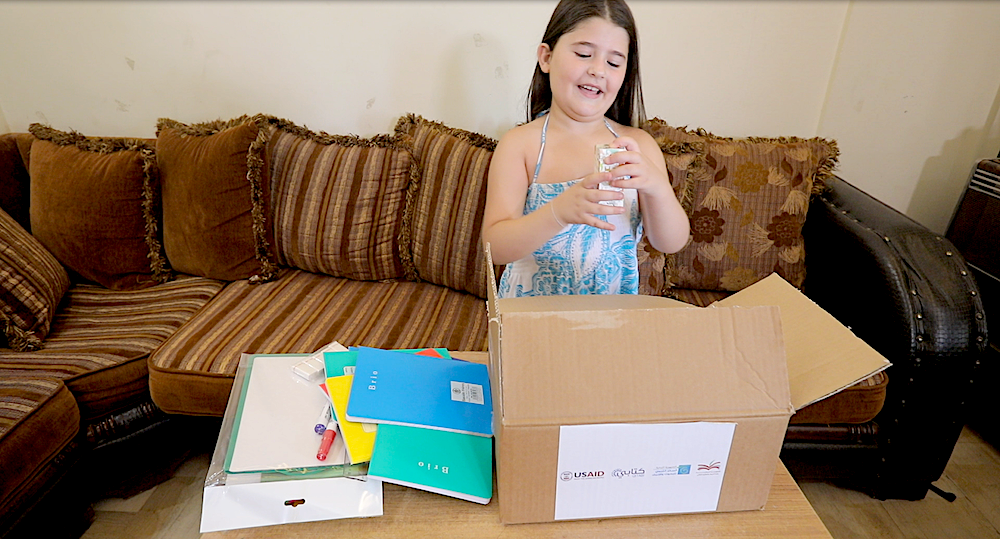
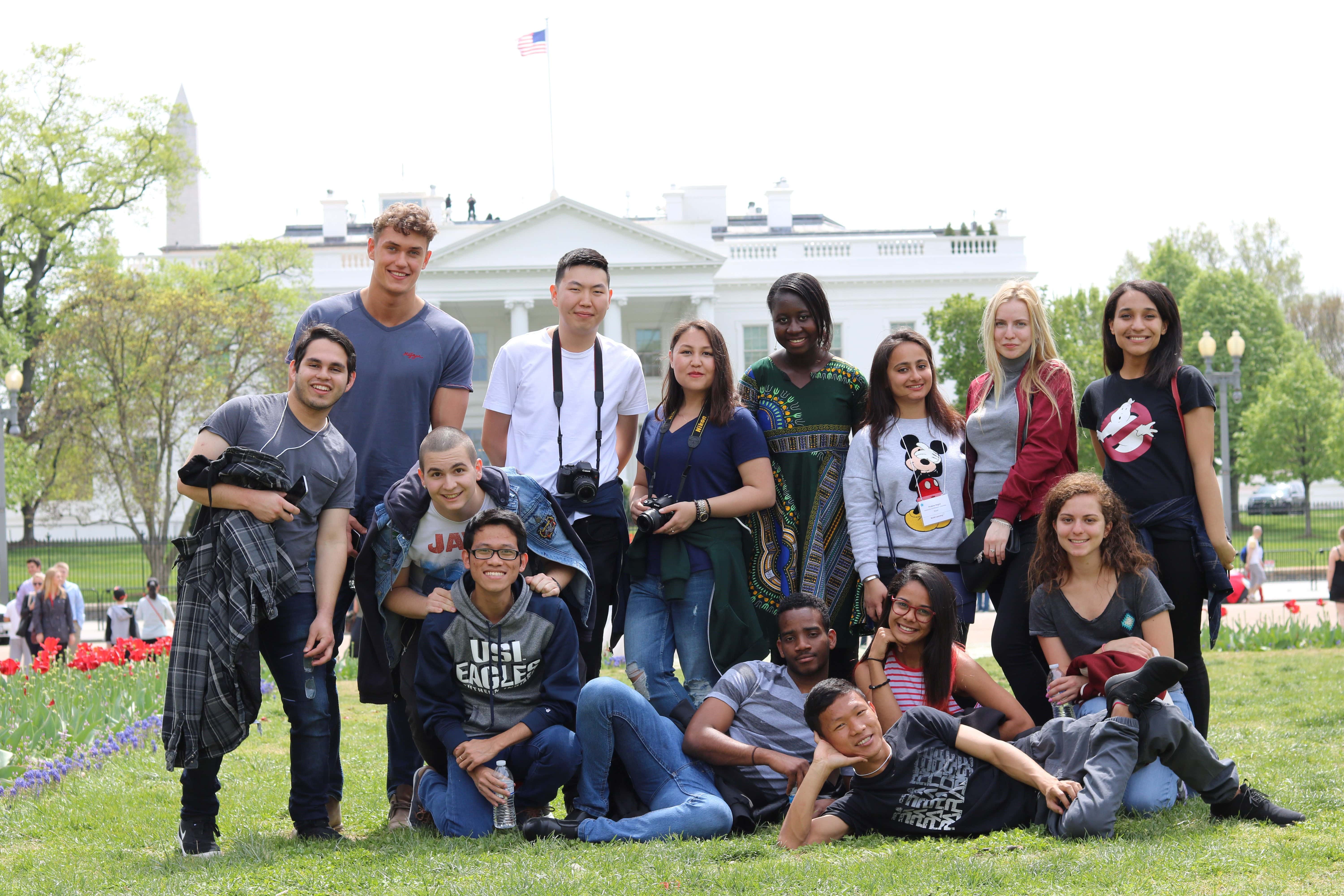
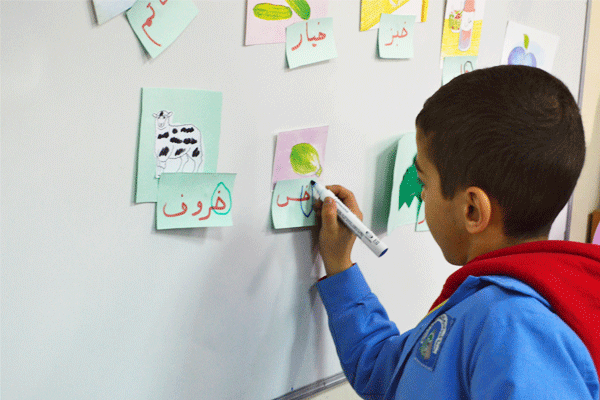
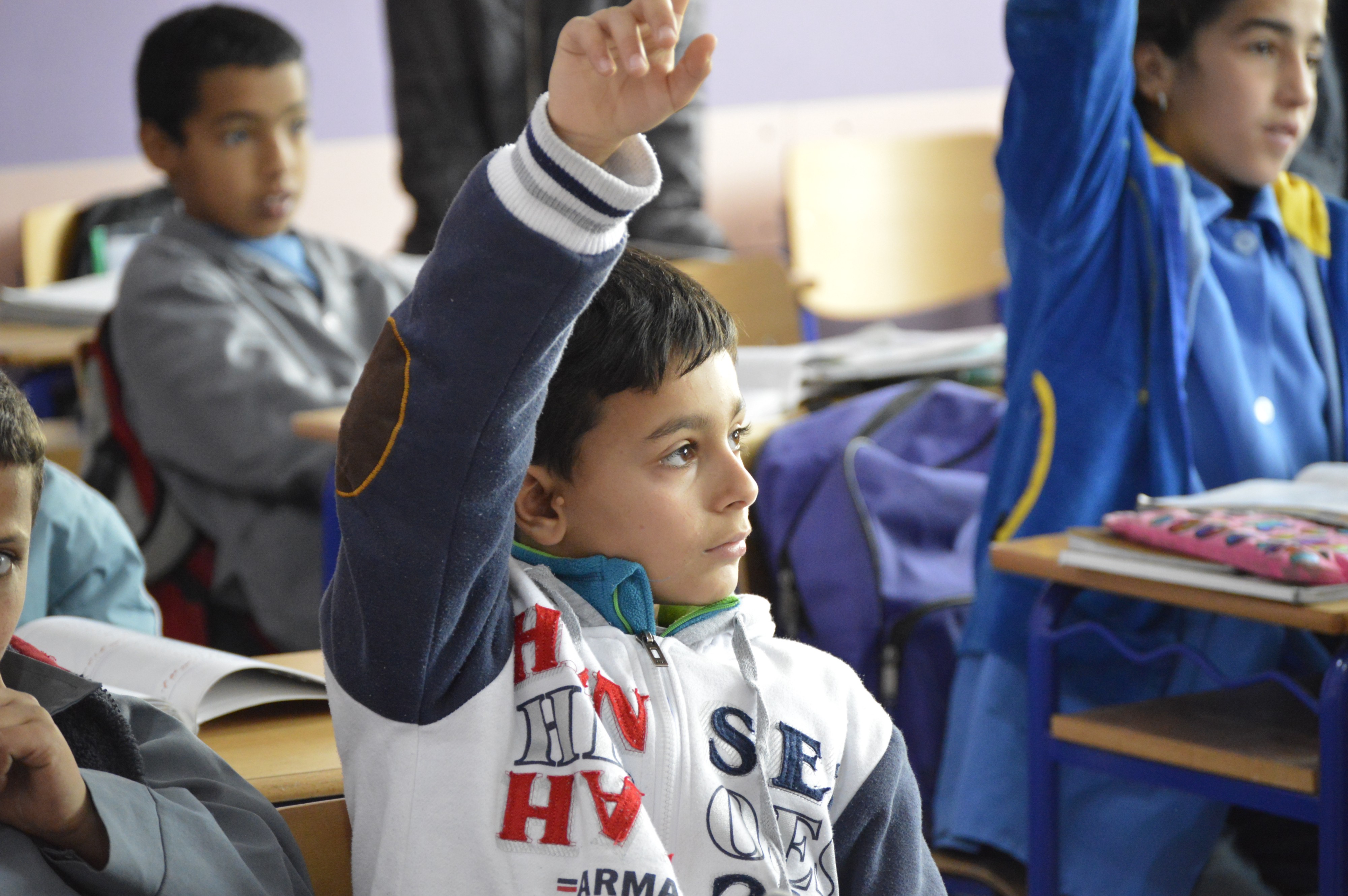
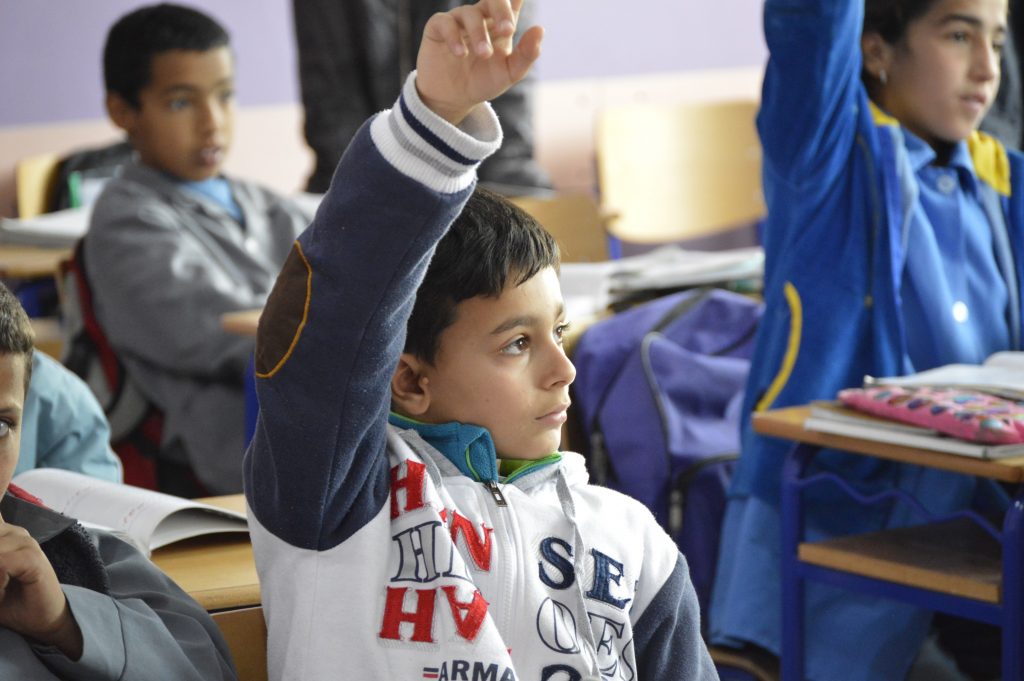
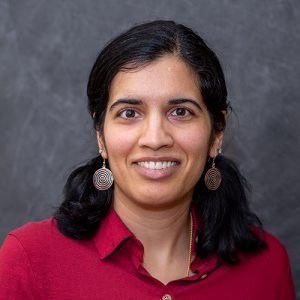
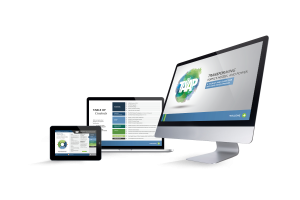
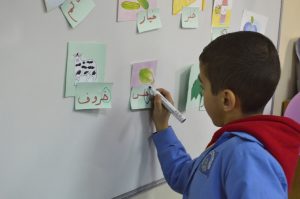
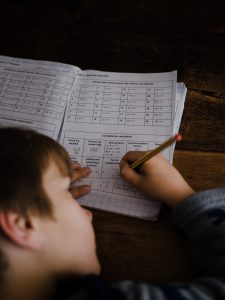
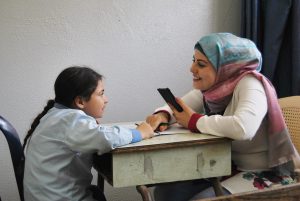

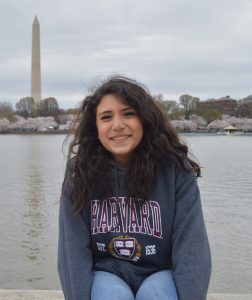
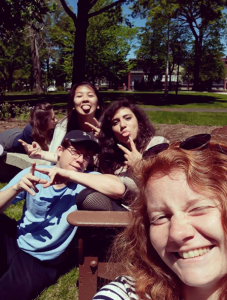
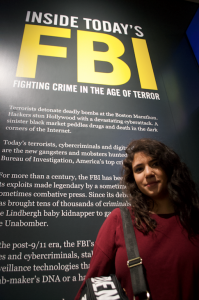


 For students to succeed in school, their teachers also need to be positioned for success. That’s why teacher training and coaching has been such an important part of QITABI. World Learning and MEHE provided training and in-school coaching to more than 1,000 Arabic language teachers at public primary schools across Lebanon.
For students to succeed in school, their teachers also need to be positioned for success. That’s why teacher training and coaching has been such an important part of QITABI. World Learning and MEHE provided training and in-school coaching to more than 1,000 Arabic language teachers at public primary schools across Lebanon. Integrating technology into the classroom has been a challenge in Lebanon, where public schools don’t have access to the internet. QITABI has helped to address this issue by providing each of the 260 participating schools with a suite of offline literacy education e-resources for grades 1–4.
Integrating technology into the classroom has been a challenge in Lebanon, where public schools don’t have access to the internet. QITABI has helped to address this issue by providing each of the 260 participating schools with a suite of offline literacy education e-resources for grades 1–4. For reading programs to be effective, educators need ongoing feedback on students’ progress to be able to adapt lessons to changing student needs. In Lebanon, though, student evaluations typically focused on reading comprehension instead of reading skills and did not prioritize collecting information teachers could use as part of a responsive classroom.
For reading programs to be effective, educators need ongoing feedback on students’ progress to be able to adapt lessons to changing student needs. In Lebanon, though, student evaluations typically focused on reading comprehension instead of reading skills and did not prioritize collecting information teachers could use as part of a responsive classroom. Despite having access to cutting-edge resources, assessment tools, and well-trained teachers, there will always be students who struggle with reading. It’s vital to identify those students as early as possible to make a difference in their academic progress.
Despite having access to cutting-edge resources, assessment tools, and well-trained teachers, there will always be students who struggle with reading. It’s vital to identify those students as early as possible to make a difference in their academic progress. Another challenge teachers in Lebanon face is bridging the divide between colloquial, spoken Arabic (Ammiya), which students learn at home, and Modern Standard Arabic (Fus-Ha), which is used in school, writing, and more formal situations. There can be wide variations in grammar, pronunciation, and vocabulary between the two, which means that students may be learning to read in what is essentially a foreign language.
Another challenge teachers in Lebanon face is bridging the divide between colloquial, spoken Arabic (Ammiya), which students learn at home, and Modern Standard Arabic (Fus-Ha), which is used in school, writing, and more formal situations. There can be wide variations in grammar, pronunciation, and vocabulary between the two, which means that students may be learning to read in what is essentially a foreign language.